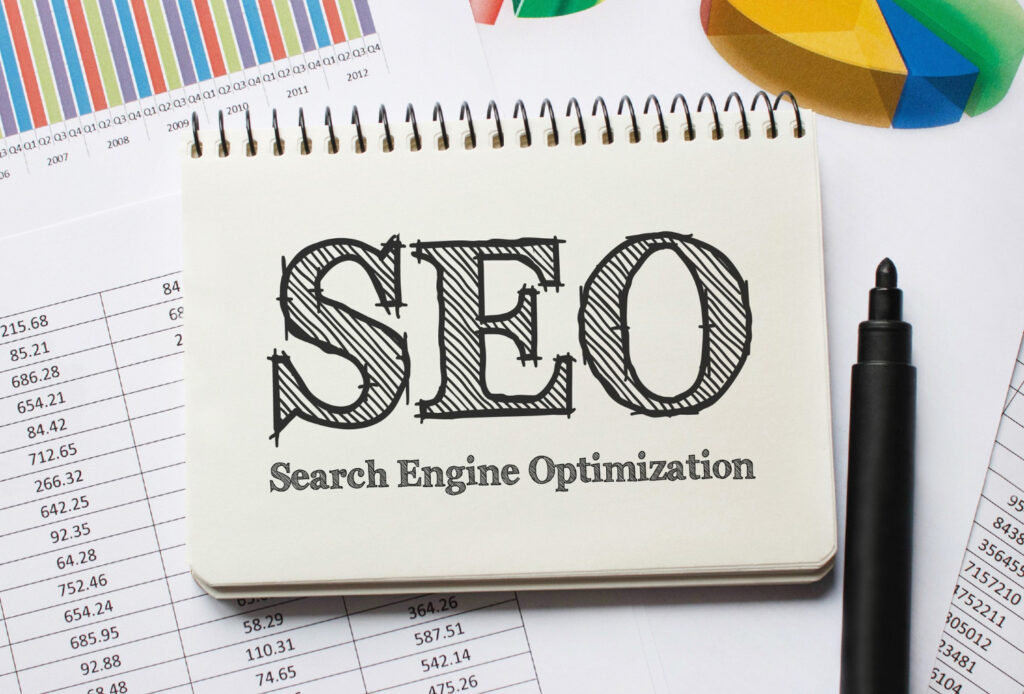When I first got into SEO nearly two decades ago, the rules were simple: stuff a page with keywords, get some backlinks (even if they were from shady directories), and boom—you were on the first page of Google. Fast forward to today, and if you try any of those tactics, Google will bury your website so deep it might as well be an abandoned MySpace profile.
SEO has changed—drastically. And if you’re still treating it like it’s 2010, your rankings are probably disappearing faster than a new social media trend. As someone who’s been tracking search engine algorithms for years, I can tell you that the modern SEO landscape is not just about ranking websites. It’s about survival in a world where artificial intelligence now decides who gets traffic and who doesn’t.
At Above Bits, a team that’s been optimizing websites long before Google had AI writing search results, we’ve seen how businesses struggle to keep up with these constant changes. Based in Charlotte, North Carolina, we’ve worked with companies that came to us after their traffic mysteriously vanished overnight. And when we dig into the root of the problem, one thing becomes clear: Google’s AI-driven SEO is rewriting the rules faster than most businesses can keep up.
Google’s AI Overlords: Who’s Really Controlling Your Rankings?

Once upon a time, SEO experts could predict how search rankings worked because search engines operated like complicated calculators—plug in the right formulas, and you’d get the desired results. Today, Google’s ranking system is no longer just an algorithm—it’s a collection of AI models that learn, adapt, and make decisions in real-time.
In Charlotte, SEO agency teams like ours have had to rethink how we optimize websites completely. Google’s RankBrain, the first AI-powered ranking factor, was introduced in 2015. Back then, it was just an experiment to understand user behavior better. Today, it’s a sophisticated system that continuously modifies search rankings based on real-time engagement. If people click on a competitor’s result and stay longer, Google’s AI will push that competitor higher, no matter how many backlinks you have.
And then there’s BERT—another AI model that Google rolled out in 2019. It analyzes the full context of a search query rather than just matching keywords. Gone are the days when stuffing “best pizza Charlotte, North Carolina” multiple times on a page would get you to the top. If your content isn’t actually helping users, Google’s AI will ignore it.
The Era of AI-Generated Search Results

A new battlefront emerged when Google tested AI-generated answers at the top of search results. If you’ve ever Googled a question and seen a paragraph of text answering it without needing to click on any website, congratulations—you’ve witnessed Google taking your traffic.
In 2023, Google introduced Search Generative Experience (SGE), an AI-driven system that generates responses to search queries using large language models. This means that instead of showing a list of websites, Google’s AI sometimes answers immediately. While this is convenient for users, it’s a nightmare for businesses relying on SEO.
Even here in Charlotte, SEO agency professionals deal with clients who lost up to 40% of their organic traffic overnight because of SGE. And it’s not just small businesses suffering—major publishers like The New York Times and Forbes have been vocal about how Google’s AI cannibalizes their clicks.
The irony? Google tells website owners to create high-quality, valuable content, but now it’s using that same content to keep users on Google’s own platform. The more people get their answers without clicking a website, the less valuable organic rankings become.
The Downside of AI-Driven SEO
For all the hype around AI making search smarter, it’s also created significant problems for website owners. The first issue is unpredictability. Google’s AI updates are never announced ahead of time, and when they hit, they can tank traffic overnight. Just ask the thousands of businesses that got wiped out by Google’s March 2024 core update, which shifted rankings in ways that even SEO experts struggled to explain.
Another issue is the rise of AI-generated spam. Since AI tools like ChatGPT and Gemini can now churn out thousands of SEO articles in minutes, search results are becoming flooded with low-quality, AI-written content. Google claims to penalize this type of content, but it’s not perfect at detecting it—meaning businesses with genuinely valuable articles sometimes lose out to AI-generated fluff.
And let’s talk about the Google sandbox effect—where new websites take forever to rank. AI models now demand an insane level of trust signals before pushing a site higher. It used to take months to rank a brand-new website, but now, with AI-driven ranking factors, some sites are stuck on page five for years unless they gain significant authority.
Why Traditional SEO Still Matters (But Needs an AI Makeover)
Despite all the doom and gloom, SEO is far from dead—it’s just evolving. The fundamentals of great content, fast-loading pages, and high-quality backlinks still matter. But today, SEO also means understanding how Google’s AI thinks and adapting in real-time.
At Above Bits, we’re constantly testing what works in this AI-dominated landscape. Based in Charlotte, SEO agency experts like us have seen firsthand that modern search optimization requires constant innovation. Whether it’s structuring content in ways that appeal to AI models or experimenting with engagement signals that Google favors, SEO today is about playing the AI’s game better than your competitors.
Where This Is All Headed
One thing is clear—Google isn’t returning to the old ways of ranking websites. AI will continue to shape how search engines function and businesses that don’t adapt will get left behind. If your SEO strategy hasn’t changed in the last few years, it’s already outdated.
The next time you search for something and Google provides an instant AI-generated answer, remember: your website could be the next casualty of this evolution.
The Future of SEO: What Businesses Must Do to Stay Visible
If Google’s AI takes over search results, does that mean businesses should abandon SEO altogether? Absolutely not. But it does mean that we need a smarter approach—one that doesn’t rely on outdated tactics or short-term tricks.
In Charlotte, SEO agency professionals who have been in this industry long enough understand that SEO is no longer just about what’s on your website. It’s about how your entire digital presence interacts with search engines.
For example, user engagement signals—like how long visitors stay on your page and whether they return to Google immediately—are now crucial ranking factors. If people don’t find your content engaging, Google’s AI will demote you, even if your on-page SEO is perfect. This is why, at Above Bits, we focus on making websites optimized for search engines and genuinely useful and engaging for real people.
But Google isn’t the only search engine in the game anymore.
SEO Beyond Google: The Rise of Alternative Search Engines
For years, Google was the undisputed king of search. However, recent trends show that people are starting to look elsewhere.
In 2024, Bing’s market share grew significantly, fueled by Microsoft’s deep integration of AI-powered search through ChatGPT-based Bing Chat. Bing may have been a joke in the SEO world for years, but Microsoft is pushing hard to steal Google’s users by offering AI-powered answers that are more detailed and interactive.
Meanwhile, DuckDuckGo has positioned itself as the go-to search engine for privacy-conscious users. With concerns over Google’s data tracking, many users (especially in Europe) are moving away from Google and toward search engines that don’t track their activity.
Even Apple is rumored to be working on its own search engine, which could shake up the entire industry. If Apple’s search engine becomes the default for iPhones, it could take a significant chunk of search traffic away from Google.
So, what does this mean for businesses? It means SEO is no longer just a Google game. Companies need to optimize for multiple platforms and ensure they’re visible wherever people search.
Voice Search and AI Assistants: The Silent SEO Revolution
While most businesses are still optimizing for traditional text-based searches, voice search is quietly taking over. Thanks to AI assistants like Siri, Alexa, and Google Assistant, more people are searching by speaking instead of typing.
Studies show that more than 50% of searches in 2025 are expected to be voice-based. And guess what? Voice searches are processed differently than traditional searches. They tend to be longer and more conversational, meaning businesses must rethink their content structure.
If your website isn’t optimized for natural language queries, you could miss out on a huge percentage of potential traffic. At Above Bits, we’ve adapted our SEO strategies to include conversational content, so websites don’t just rank well on Google but also get featured in voice search results.
The Harsh Truth: AI-Driven SEO is More Expensive Than Ever
There’s no sugarcoating it—SEO in 2025 is more expensive and time-consuming than it used to be.
A decade ago, businesses could get away with basic optimization and a few backlinks to rank well. Today, the cost of maintaining high rankings has skyrocketed because search engines demand constant updates, fresh content, and engagement-focused strategies.
For many small businesses in Charlotte, SEO agency expenses are now one of the most significant parts of their marketing budget. And while investing in SEO is still one of the highest ROI strategies, the days of “set it and forget it” are long gone.
At the same time, automation tools and AI-generated content have made it easier than ever to flood the internet with low-quality articles. This means businesses that cut corners will eventually lose rankings to those who invest in high-quality, human-driven content.
Where SEO is Heading Next
If you take one thing away from this article, let it be this: SEO will constantly evolve but never disappear.
Yes, AI is changing the way search engines work. Google is taking more traffic for itself. Yes, ranking on the first page is more challenging than ever. However, the core of SEO—creating valuable content that answers people’s questions—is still the key to success.
At Above Bits, we’ve spent nearly two decades adapting to Google’s ever-changing rules. Our experience in SEO work has taught us that while the tactics may change, the goal remains the same: get businesses in front of the right audience at the right time, with the right content.
If you’re serious about staying ahead in this AI-dominated SEO world, now is the time to rethink your strategy. The search game isn’t dead—it’s just brighter than ever.
You can learn more about modern SEO strategies and how we navigate these changes by visiting our experienced Charlotte SEO agency.







